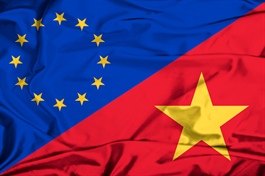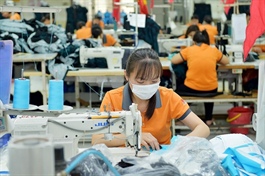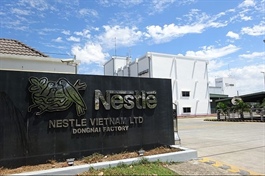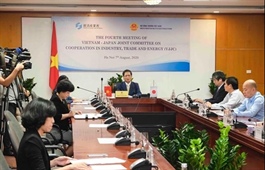Pandemic restricting local oil groups
Pandemic restricting local oil groups
The return of coronavirus in Vietnam is once again dragging down local oil businesses as a silver lining for their recovery has been rocked.
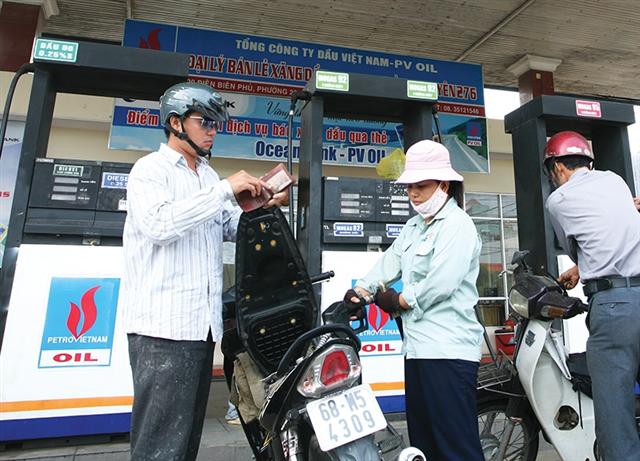
Pandemic restricting local oil groups
|
As domestic oil firms hope for rejuvenation after the damage caused by the pandemic in the year’s first half, the new outbreak has stalled them further, resulting in a great downturn in their stock prices.
Over the past two weeks, Petrolimmex (HSX: PLX) saw a decline of 6.42 per cent to VND44,450 ($1.93) per share, while PVOil (UPCoM: OIL) dropped by 7.41 per cent to VND7,500 ($0.32) per share. PetroVietnam Drilling and Well Service Corporation (HSX: PVD), PetroVietnam Technical Services Corporation (HNX: PVS), and PV Gas (HSX: GAS) also recorded cutbacks of 4.29, 4.8, and 3.62 per cent to VND10,050 ($0.43), VND11,900 ($0.51), and VND69,300 ($3), respectively.
According to Bao Viet Securities, the local oil and gas industry will find it hard to recover in the second half, especially PVS, GAS, and PVD which are depending on the global oil market.
PVD, for instance, has been poring over a hefty dilemma. Due to pandemic lockdowns in Malaysia, the arrival of high-skilled labourers to Vietnam has been restricted, bringing about shortcomings in labour resources. Currently, many Malaysian experts are working on PVD projects in Vietnam. Moreover, due to the plummeting demand for oil, PVD’s customers have tended to lessen or extend the timeline for exploitation, affecting the progress of its drilling rigs.
In a recent business report, PVD stated that the last six months of 2020 will remain burdensomme for the company because the health crisis remains rampant in the United States, Brazil, India, and Russia. Additionally, the oil price has been low.
However, in the first half of this year, the company estimated to have fetched about VND3.18 trillion ($138.2 million) in revenue, up 66 per cent on-year. After-tax profit also reached VND85 billion ($3.7 million), up 204 per cent on-year.
Explaining the growth, PVD revealed that performance of its drilling rigs has been stable over the peak of the pandemic with 3.56 jack-up rigs (higher than the 3.45 last year) and a 9 per cent increase on-year in rig-leasing price.
PVS has been sharing these difficulties with some contracts providing services in Qatar. As the COVID-19 situation is growing in complexity, the arrangement of overseas personnel for the projects has been restricted, impacting its profit in the next quarters, according to SSI Research.
The company’s revenue dropped 26.4 per cent in the first quarter to VND3.01 trillion ($130.87 million). Also, net profit was VND128 billion ($5.56 million), down 67 per cent on-year.
In the morning of August 6, crude oil rose a few cents after sharp growth in the previous day. According to Dow Jones, WTI increased by 49 US cents or 1.2 per cent to $42.19 per barrel, and Brent went up by 46 US cents or 1.7 per cent to $45.17 per barrel.
Furthermore, the COVID-19 outbreak earlier this year drew the oil price down to a historical low, dealing a significant blow to companies in the gasoline business such as Petrolimex, PVOil, and Binh Son Refining and Petrochemical Co., Ltd (UPCoM: BSR), which all reported in losses in the first quarter due to cutting the price of inventories.
Nguyen Duyen Cuong, deputy general director of Binh Son Refining and Petrochemical, told VIR that as China occupies 17 per cent of global GDP, the fall in oil price caused by the health crisis will keep impacting the local petroleum industry. Oil refineries in the whole world are estimated to cut 3-5 per cent capacity, affecting petrochemicals.
“To deal with the burden, BSR will keep boosting negotiations with oil field owners by comparing the common price in the market to get the most favourable purchasing price,” said Cuong.









